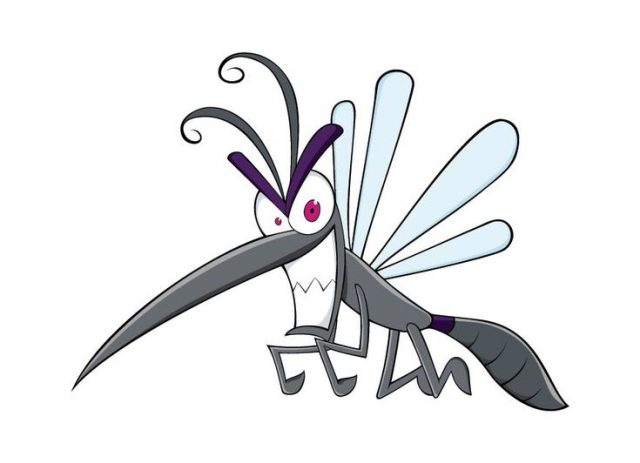During this summer time, We were in our backyard and enjoying dinner with family. Ouch! We just noticed a painful, swelling mosquito bite on our arms. Well, you must be thinking that you don’t need to bother as you dine in your dining room instead. Mosquitoes do not require any gate pass or someone’s permission to roam our entire surroundings. They can be seen in almost every place you think of. From the bedroom to dining, from Workplace to the playground they will not let you down and show their visibility.
There are more than 3,000 species of mosquitoes. It is surprised to know that out of 3,000 species only 3-5 members bear primary responsibility for spreading diseases in human beings. Only female mosquitoes have necessary the mouth parts for blood sucking. While biting with their proboscis, they stab two tubes into the skin: one for injecting anticoagulant enzyme to inhibits blood clotting; and while other tube used for blood sucking purpose . They use protein from the sucked blood to nourish their eggs. For their own nourishment, both males and females rely on nectar and plant sugars.
There are a number of diseases transmitted by mosquitoes. Anopheles mosquitoes are the only species known to transmit malaria. However, they also transmit filariasis and encephalitis. Culex mosquitoes carry West Nile virus.And Aedes mosquitoes, carry yellow fever, dengue, and Zika virus.
Mosquitoes are equipped with a battery of sensors intended to track and bite their prey, including:
Chemical sensors: Mosquitoes have chemical sensors which help them to sense carbon dioxide and lactic acid from even 100 feet away. Mammals and birds regularly release these gases as part of their normal breathing. Certain chemicals in sweat also have a tendency to attract mosquitoes. However, people who don’t sweat much are less prone to mosquito bites.
Heat sensors: Mosquitoes can also tend detect heat, That’s why they find warm-blooded mammals and birds very easily once they get close to them.
Life Cycle and Breeding:
Like other insects, mosquitoes hatch from eggs and go through several stages in order to become adults. The females lay their eggs in water. After hatching their larva and pupa stages completed entirely in the water. Once pupa changes into adults, they leave the water and become full-fledged flying insects. Their life cycle varies from one to several weeks depending on the species, temperature, and food availability.
11 Facts Related to Mosquitoes:
1: Mosquitoes have been serving since the Jurassic period:
That means they are around for about 210 million years old. Mosquitoes have been mentioned throughout history. They are mentioned in the works of Aristotle around 300 B.C. and in the writings of Sidonius Apollinaris in 467 B.C.
2: Mosquitoes are considered the deadliest animal in the world:
Anopheles mosquito, in particular, is very dangerous as it transmits malaria, which accounts more than one million deaths every year, primarily in Africa. It is also believed that Alexander the Great died of malaria in 323 B.C.
3: Mosquitoes are Toothless:
The female mosquitoes bite with a long, pointed mouth-part known as a proboscis. They use the serrated proboscis for the piercing and locating a capillary purpose then draw blood using one of the tubes.
4: A mosquito can suck or drink blood up to thrice of its own weight.
Don’t worry, though. It would take them about 1.2 million bites to drain all the blood from your body.
5: Only female mosquitoes bite:
Primarily both male and female feed on fruit and plant nectar, However females also need protein blood for their eggs development.
6: Female mosquitoes can lay up to 300 eggs at a time:
Eggs are deposited in clusters called rafts on the surface of stagnant water. Females may lay eggs up to three times throughout their entire life.
7: The average mosquito lifespan is less than two months:
Males have the shortest life span usually lasts 10 days, On the other hand, females can survive about six to eight weeks in ideal conditions.
8: Male mosquitoes locate females by their wing’s sound:
Females can beat their wings up to 500 times per second. Male mosquitoes pick females having higher wing beat frequency for mating purpose.
9: Mosquitoes do not transmit HIV:
AIDS-causing viruses do not replicate in mosquitoes. They actually digested in their stomachs and broken down without being passed on.
10: Dark clothing attracts mosquitoes:
Mosquitoes are attracted towards dark colors, So by choosing lighter outdoor clothes will help in avoiding unwanted bug bites. It also keeps you cooler in the summer heat.
11: Mosquitoes spend their first 1 0 days in water:
Water plays a vital role for the eggs to hatch into larvae called wigglers. Wigglers feed themselves on organic matter in stagnant water and for breathing they come on the water surface. They develop into pupae and later change into adult mosquitoes































































Visitor Rating: 5 Stars
Visitor Rating: 5 Stars
Visitor Rating: 5 Stars
Visitor Rating: 5 Stars
Visitor Rating: 5 Stars
Visitor Rating: 5 Stars
Visitor Rating: 5 Stars
Visitor Rating: 5 Stars
Visitor Rating: 1 Stars
Comments are closed.